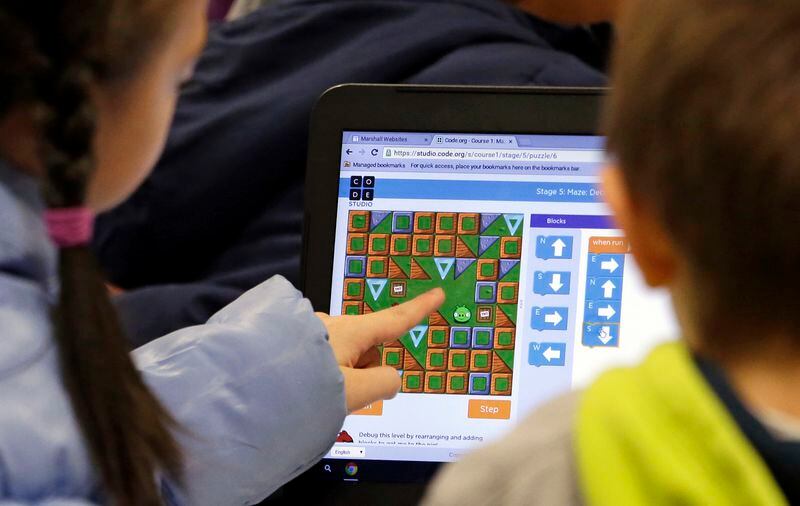Jane Robbins of Atlanta is an attorney and senior fellow at the American Principles Project, a conservative think tank.
By Jane Robbins
Most public-school parents have heard glowing claims that "digital" or "personalized" learning will transform education, but they may not understand exactly what this means. The Georgia Senate Education and Youth Committee is now considering a bill, Senate Bill 281, that would protect parents' right to be told what's going on in the classroom.
Credit: Maureen Downey
Credit: Maureen Downey
“Digital learning” in this context refers not to an alternative means of accessing text (such as a Kindle), but to interactive programs in which a student is given a prompt, to which he responds, which generates another prompt, and so on. Think Pavlov.
These interactive programs, marketed by private vendors, frequently use sophisticated software that collects massive amounts of highly personal information about the student's behaviors, mindsets, and attitudes – the "21st-century" psychological skills that the government thinks he should have.
The U.S. Department of Education has released two draft reports describing in detail this brave new world of psychological profiling and brain-mapping. The first, "Promoting Grit, Tenacity, and Perseverance," discusses the "affective" computing that can analyze students' psychological attributes and emotional states as they interact with the software. The report touts the potential educational value of recording data from posture analysis, skin-conductance sensors, EEG brain-wave patterns, and eye-tracking.
The second report, Expanding Evidence: Approaches for Learning in a Digital World, lauds these programs' psychological data-collection and urges sharing of this data with other "stakeholders" (such as other government agencies) that may have an interest.
The bottom line is that sophisticated programs owned by private corporations are collecting and analyzing highly sensitive data on children – and parents have no idea this is happening.
Nor do parents know how this data may be used in the future. The corporation may use the data for its own benefit, perhaps for developing new products. And with the “longitudinal data system” that tracks Georgia students from preschool to the workforce, imagine the breadth of such a psychological profile and the future value to certain entities – employers, law enforcement, etc. If the data exists, it’s only reasonable to assume it will be used, and perhaps in ways parents would object to.
The issue here goes far beyond data security. It is whether the government and private companies have any right to collect this highly sensitive data in the first place. SB 281 merely lets parents.know when this is happening. Who could object to that?
About the Author







